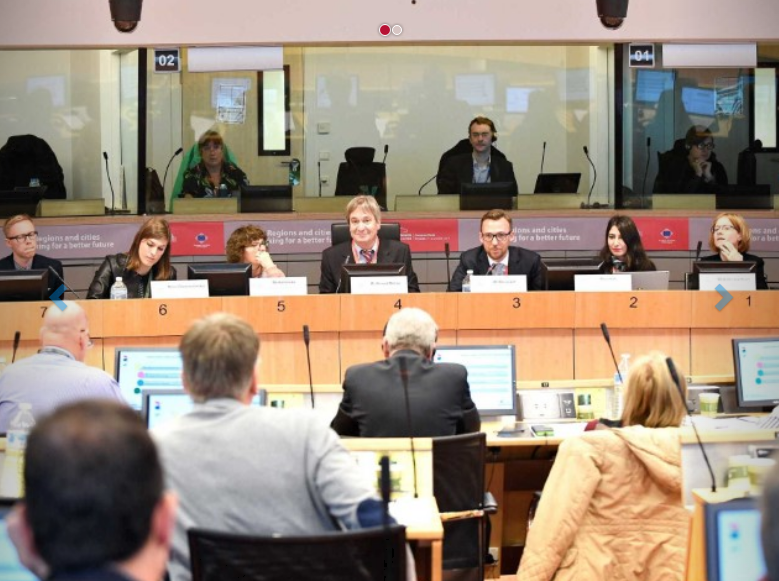Supporting business transfers in Europe's regions and cities
http://cor.europa.eu
Publicado el 23-01-2018
Fecha de inicio: 23-01-2018
Fecha final: 23-01-2018

In his opening statement, the chairman of the workshop, Francisco Álvarez from the Valencia Region (EER 2015), highlighted the range of measures implemented by the EER regions to date, such as the Business Transfer Loan Fund launched by Glasgow (EER 2016); an initiative focusing on the generational replacement of entrepreneurs implemented by Extremadura (EER 2017); and the STOB Regions' Interreg Europe project led by Brandenburg (EER 2011), which supports sharing good practices for business transfers and encourages a greater focus on business transfers in the future Cohesion Policy.
Two examples of successful practices developed and implemented in EER regions were presented in greater detail: Robert Maciaszek from the Małopolska region (EER 2016), discussed measures supporting business transfers
carried out in his region, including vouchers for consulting, which allow SMEs to purchase specialist advisory services that meet their real needs, as well as a guide to family business succession aimed at companies on the verge of generational change. Marie Depelssemaker of Transeo presented the Reempresa project developed by Catalonia, an EER 2012 region, which has created a unique marketplace for business successions, making it possible to save viable companies and create new jobs through a broad partnership of public authorities, business associations, and other relevant stakeholders.
Erdmuthe Klaer-Morselli of REVES presented the "Saving Jobs!" pilot project, which focuses on cooperative workers' buy-outs as a specific form of business transfer, highlighting the importance of an appropriate legal framework, the importance of training for both workers and owners, the buy-in from key stakeholders such as trade unions, and the role of successful communication campaigns that mobilise local communities among key success factors.
Reacting to the presentations of successful practices, Lucyna Kaminska from the European Commission presented current priorities for supporting business successions at European level, such as the need to incorporate business transfer into entrepreneurship education curricula, and the objective of involving the European Enterprise Network more closely in supporting business transfers. Rania Labaki, of the EDHEC Business School, Roubaix, put the issue of family business transfers in a broader perspective, addressing questions linked to taxation, entrepreneurship education, and the emotional dynamics of transfers.
Among the main results, Francisco Álvarez highlighted the need to raise awareness about business transfer opportunities among both business owners and potential buyers, the importance of a partnership approach and the key role of regions and cities, which are the public authorities with the best knowledge of the specific needs of their entrepreneurial ecosystems, as key enablers of successful business successions.
Font: